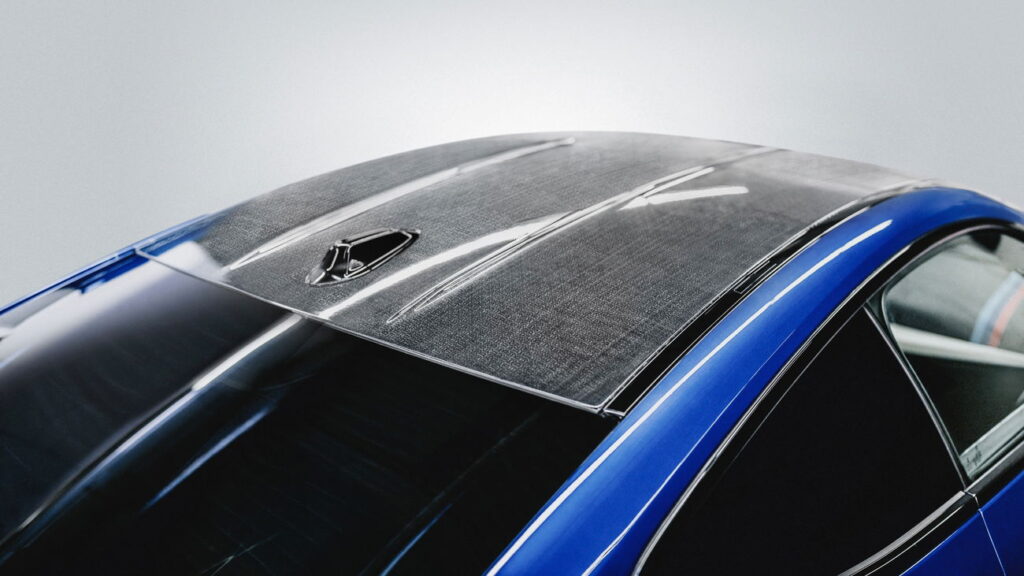There’s a lot of talk these days of plant-based things as we all try to cut down on our CO2 emissions, and over at BMW, plants will soon play a role in the manufacturing of lightweight body parts. The company has announced it’s made a major breakthrough in the manufacturing of lightweight composite materials – essentially stuff that does the same job as carbon fibre – made from renewable raw materials.
Specifically, the components are made using fibres from flax crops, the same plants that give us linen and linseed oil. Rather than being used for polishing wood or as a nice breathable fabric for wearing on holiday, though, BMW’s set to use it to make strong, lightweight bits of car.
BMW M4 with natural composite diffuser
In fact, through a partnership with Swiss green tech company Bcomp, which BMW has a stake in, it’s already been doing it for a few years. The material first featured in BMW’s Formula E racer back in 2019, and has since appeared in place of carbon fibre reinforced plastic on the DTM and GT4 racing versions of the M4.
Now, though, the company says it’s ready to start using it in its next generation of road cars, and has handily demonstrated it by fitting an M4 with a roof and rear diffuser made of it. Sure enough, it looks just like carbon fibre, but BMW says that using it in the roof of its next-gen cars will lead to a reduction in the manufacturing process’ CO2 emissions of up to 40 per cent.

Flax crop
Before that, though, the materials will be subject to a particularly rigorous test as they’re fitted to another M4 GT4 that’s racing at this weekend’s Nürburgring 24 Hours.
BMW M boss Franciscus van Meel said: “We are delighted to confirm the series maturity of these materials, a breakthrough we achieved with our official BMW M Motorsport partner Bcomp. We are now looking forward to the use of these materials in future BMW M product ranges.”
So, how long before BMW manages to make an entire car out of plants?
Read the full article here


